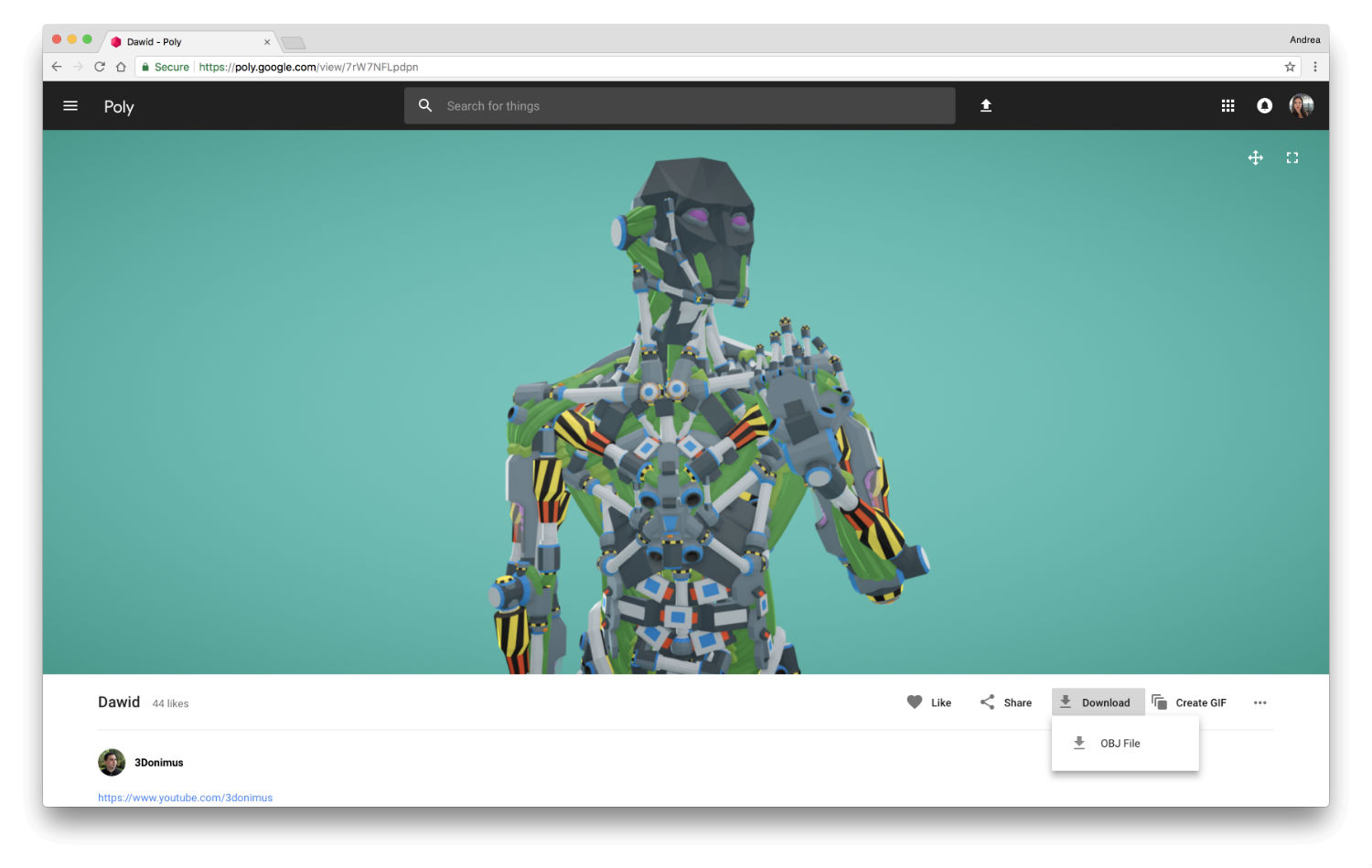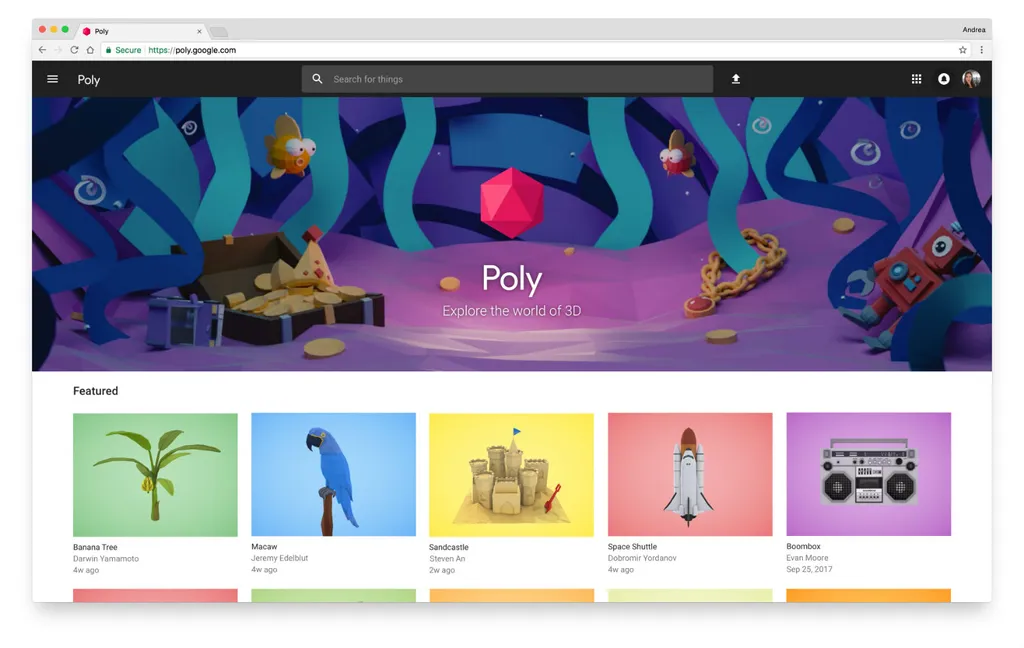Google is launching Poly, a service with a growing library of free objects for creators to incorporate into their virtual worlds.
The repository immediately makes it easier for creators to publish their works from apps like Tilt Brush and Blocks, as well as find pieces to incorporate into their own designs. The service, however, is another piece of the puzzle as Google seems focused on a much grander ambition. Poly further positions Google to deliver foundational software and services that could one day open up 3D modeling and virtual world creation to millions of people through VR and AR.
[gfycat data_id=”HonorableAchingAnteater”]
Google started its journey by acquiring early VR art app Tilt Brush — which makes it easy for anyone to create something in VR. Earlier this year, the company added Blocks to its creative suite of immersive computing apps — enabling the creation of simple 3D virtual objects. With Poly, creations from both apps have a home on the Web. At its surface Poly might look much like startup Sketchfab, but it launches with a twist geared toward free content sharing and built-in attribution. If you use Google’s creativity apps with Poly, the service handles attribution of those models. Even if a model of, say, a rock, becomes a small piece of a much larger scene the original creator’s contribution is still recorded.
There is no monetization built into the system yet, so creators can’t charge for their work. Charging for creations with Poly might never happen, in fact, when you consider the way Google monetizes YouTube videos by giving creators a portion of ad dollars. But creators can also disallow remixing of their content too, turning the site into a read-only gallery or portfolio for their work. For those that feel more communal, however, turning on remixing also allows for the easy download of OBJ files that can be incorporated into a variety of apps beyond Google’s own.

We know Google is exploring methods of animating creations, which would take VR-based software design one step further. Today, to add animation or interactivity to these VR-based works they usually need to be incorporated into other software and eventually added to a game engine like Unity or Unreal Engine to fully develop and publish a fully reactive virtual world. Learning how to construct complex logic that makes a virtual world fun or interesting to be inside can take years of practice, and so can designing art for these worlds with an eye toward detail that can evoke deep emotions. But adding realistic textures that bring these objects to life, animating them so they move believably and building in logic so a world is reactive to a person’s behavior certainly seems like the ultimate goal for Google.
Tilt Brush, Blocks, Poly. There’s a trend here. Our goal is to make 3D creation easy, and for everyone.
— Clay Bavor (@claybavor) November 1, 2017
In May, Google acquired Job Simulator creator Owlchemy Labs, a startup which could ultimately further its ambitions. The company built some of VR’s biggest games with both Rick & Morty and Job Simulator, but more significantly developed underlying physics and interaction techniques that brought its worlds to life. For example, you can pour a cup of coffee and mix in cream and the liquid’s color would change, or put the cup in a refrigerator and watch the steam coming off it dissipate more quickly than if it was on a counter top.
“All our tech is insanely re-usable,” Owlchemy CEO Alex Schwartz wrote in an e-mail before the acquisition. “We plan on leveraging it for all future titles.”
Google’s Jason Toff, a group product manager, indicated it’s a possibility Poly’s objects could find integration with Los Angeles-based Mindshow, which animates characters with real world acting. From Job Simulator to Mindshow, there’s a trend here that could see behavior we know from natural interaction with the real world making the leap to intuitively create VR software. The types of real world interactions people use in these worlds could dramatically lower the barrier to entry when it comes to designing software from scratch.
9/ Another favorite: the thousands of models that we’re distributing for FREE (including for commercial use): https://t.co/BipSn20bFn
— Jason Toff (@jasontoff) November 1, 2017






























